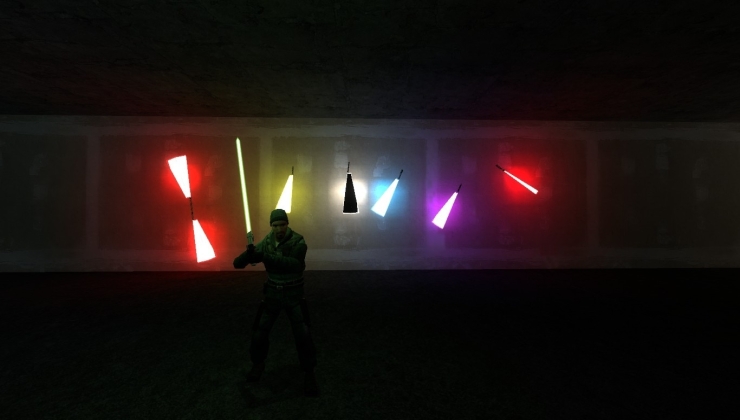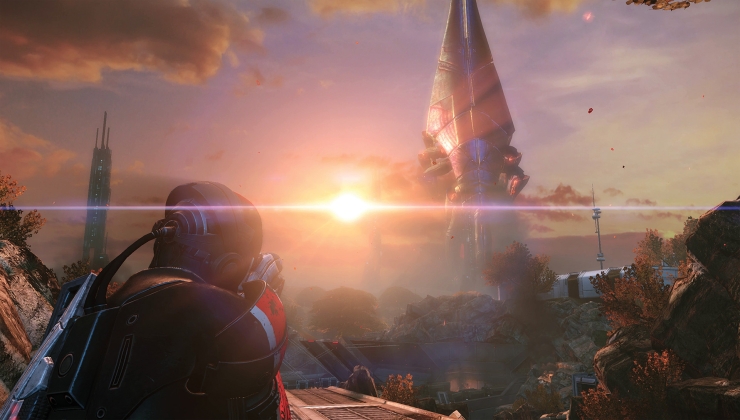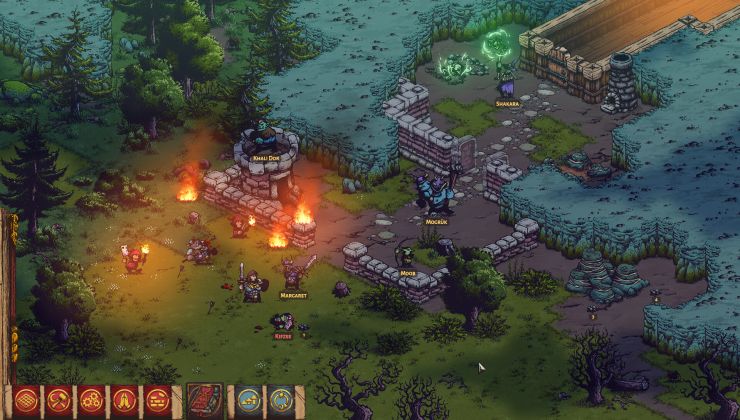Another month, another set of stats showing that Linux desktop seems to be doing better than ever. According to Statcounter, the Linux share has risen once again. A great sign for the health of the platform with more people using it.
While over on Steam the Linux numbers did dip over the last month, it still remaining above macOS which is interesting from a gaming standpoint but general desktop use is quite different.
The latest from Statcounter shows:
- January - 2.91%
- February - 2.94%
- March - 2.85%
- April - 2.83%
- May - 2.7%
- June - 3.07%
- July - 3.12%
- August - 3.18%
The Windows share only dropped slightly this month, with the macOS share also dropping. However, ChromeOS, which is also technically a Linux distribution, rose from 3.24% to 3.34%. So if we included that Linux would actually be on around 6.52%.
What are your thoughts? Be sure to leave a note in the comments!
I do wonder if the gaming side has fed into this--if people aren't finding themselves more able to switch because the answer to "But can I play my games?" is now basically "Yes."
In my case that's actually one of the primary reasons I started following GoL--I concluded that the gaming side was a really key strategic issue for desktop growth more generally.
Quoting: Purple Library GuyJolly good!"The big problem that is holding back Linux is games. People don’t realize how critical games are in driving consumer purchasing behavior."
I do wonder if the gaming side has fed into this--if people aren't finding themselves more able to switch because the answer to "But can I play my games?" is now basically "Yes."
In my case that's actually one of the primary reasons I started following GoL--I concluded that the gaming side was a really key strategic issue for desktop growth more generally.
-- Gabe Newell, 2012
Quoting: Purple Library GuyJolly good!So you're only here for strategic reasons? ;)
I do wonder if the gaming side has fed into this--if people aren't finding themselves more able to switch because the answer to "But can I play my games?" is now basically "Yes."
In my case that's actually one of the primary reasons I started following GoL--I concluded that the gaming side was a really key strategic issue for desktop growth more generally.
Quoting: EikeI think Stellaris counts as a strategic reason :grin:Quoting: Purple Library GuyJolly good!So you're only here for strategic reasons? ;)
I do wonder if the gaming side has fed into this--if people aren't finding themselves more able to switch because the answer to "But can I play my games?" is now basically "Yes."
In my case that's actually one of the primary reasons I started following GoL--I concluded that the gaming side was a really key strategic issue for desktop growth more generally.
I think that the moment for the 6.52% that probably will be 7% or more then, will be when Chrome OS will include GNU Steam client, and some tablets laptops and hybrids with AMD APU, as actual handhelds, and perhaps a handheld powered by Chrome OS too.
And if they manage to provide good enough for gaming ARM SoC devices, with a (new) Steam client or the windows one running under wine for ARM, even better.
But I think it will happen in 2025 or if sooner late 2024 if it happens, and I think it will happen.
Quoting: mitcoesIt will be 6.52% Linux soon, as Chrome OS is going to switch to WaylandSince when has using Wayland 100% of the time been a requirement to be a Linux distribution? If we went by that standard SteamOS, or a lot of people still using X wouldn't count as "Linux" either.
ChromeOS is already a Linux distribution, all that is happening is it modernizing and moving closer to the rest of the ecosystem. We need to stop splitting Linux apart over relatively minor differences.
Quoting: mad_mesaChromeOS is already a Linux distributionI don't disagree with that, technically. But despite that it's oddly un-useful, at least so far. I mean, Linux has a sort of software ecosystem, from LibreOffice and the GIMP and stuff to on the gaming side things like Proton and Steam and a bunch of Linux native games. And, ChromeOS won't run any of that stuff. Sure, there's sortakindamaybe ways to make it, and they keep talking about maybe coming soon, but for practical purposes a bunch of ChromeOS users aren't going to add to the Steam Linux marketshare, or contribute to reaching a critical mass that might force people to pay attention to .odt files or whatever.
Quoting: StoneColdSpider[Go Team Penguin!!!.......](https://www.youtube.com/watch?v=4hpryssGcMU&t=8s)I have one for you too ;P
https://www.youtube.com/watch?v=e0jbHCZ4I6U
Quoting: ElectricPrismWhat the F....... Did I just watch???.........Quoting: StoneColdSpider[Go Team Penguin!!!.......](https://www.youtube.com/watch?v=4hpryssGcMU&t=8s)I have one for you too ;P
https://www.youtube.com/watch?v=e0jbHCZ4I6U
Thats been added to the meme database as well........
Quoting: StoneColdSpider:whistle: Italian Spiderman is ambushed by two of his arch-nemesis Captain Maximus' female evil henchmen while riding a surfboard. Beaten to his knees by aquatic batons, under duress Italian Spiderman blows on his Magic Conch Shell and cries out in Spanish "I summon penguiniiiiiiiii", after-which a swarm of what appears to be gentoo penguins amass. In the next scene by way of literal poor production value and expert comedy the gentoo penguins are transformed into dozens of small plastic penguins who are thrown in a an endless stream at the female henchmen granting Italian Spiderman relief and deliverance from his ambushers.Quoting: ElectricPrismWhat the F....... Did I just watch???.........Quoting: StoneColdSpider[Go Team Penguin!!!.......](https://www.youtube.com/watch?v=4hpryssGcMU&t=8s)I have one for you too ;P
https://www.youtube.com/watch?v=e0jbHCZ4I6U
Thats been added to the meme database as well........
;P That was a fun write -- someday I'm going to have to have AI upscale the video or make Lunix Gamer memes out of it.
Quoting: ElectricPrismMy favourite part was when the female henchmen swam to him and got on his surfboard and were completely dry.......Quoting: StoneColdSpider:whistle: Italian Spiderman is ambushed by two of his arch-nemesis Captain Maximus' female evil henchmen while riding a surfboard. Beaten to his knees by aquatic batons, under duress Italian Spiderman blows on his Magic Conch Shell and cries out in Spanish "I summon penguiniiiiiiiii", after-which a swarm of what appears to be gentoo penguins amass. In the next scene by way of literal poor production value and expert comedy the gentoo penguins are transformed into dozens of small plastic penguins who are thrown in a an endless stream at the female henchmen granting Italian Spiderman relief and deliverance from his ambushers.Quoting: ElectricPrismWhat the F....... Did I just watch???.........Quoting: StoneColdSpider[Go Team Penguin!!!.......](https://www.youtube.com/watch?v=4hpryssGcMU&t=8s)I have one for you too ;P
https://www.youtube.com/watch?v=e0jbHCZ4I6U
Thats been added to the meme database as well........
;P That was a fun write -- someday I'm going to have to have AI upscale the video or make Lunix Gamer memes out of it.
Quoting: mad_mesaSince, forever? To be a GNU/Linux distro the distro would need to support the stacks that Linux binaries would require to run. This includes either X11 or Wayland. Chrome OS currently uses neither of these two, which is why Linux apps in ChromeOS run via a VM and cannot run natively. If ChromeOS does indeed switch from Freon (the currently used display server/protocol) to Wayland it means we should be able to run Linux binaries natively on ChromeOS. Additionally, if ChromeOS switches to Wayland it means it'll have to rebuild it's Android compatibility layer work with Wayland, which hopefully means we can probably get that running on other distros.Quoting: mitcoesIt will be 6.52% Linux soon, as Chrome OS is going to switch to WaylandSince when has using Wayland 100% of the time been a requirement to be a Linux distribution? If we went by that standard SteamOS, or a lot of people still using X wouldn't count as "Linux" either.
ChromeOS is already a Linux distribution, all that is happening is it modernizing and moving closer to the rest of the ecosystem. We need to stop splitting Linux apart over relatively minor differences.
Quoting: sarmadwhich is why Linux apps in ChromeOS run via a VM and cannot run natively.Not entirely true, but for end users how is this really that different from other modern end-user focused distributions with immutable file systems, and that only run typical desktop software distributed in self-contained formats like Flatpak? It is simply an earlier take on the same concept of how to make a Linux distribution aimed at specific use cases and avoiding as many pitfalls as possible.
means we should be able to run Linux binaries natively on ChromeOS.That was always possible, just not exposed. I also don't think it means that will be made easier for end users. ChromeOS will remain a distribution primarily focused on running containerized software. Chrome itself in the new version, runs as a container separate from the underlying Linux system. However, it should become easier for end users to run other Linux containers that have been pre-configured, or to create their own.
If we demand that every Linux distribution, to count as a Linux distribution, must look like Debian or Redhat, with the underlying system immediately accessible, and not allowed to use Linux features like containers to improve security to help protect end users, then "Linux" is never going to gain marketshare. It will remain a tiny niche for developers and enthusiasts, even as mainstream targeted Linux distributions continue to see adoption.
Quoting: mad_mesaFor end users, you say. Um, entirely different? The immutable file system thing says "This distribution has a somewhat limited software repository, but it runs most of the usual software that you've probably ever used and you probably will never notice the difference in installation method."Quoting: sarmadwhich is why Linux apps in ChromeOS run via a VM and cannot run natively.Not entirely true, but for end users how is this really that different from other modern end-user focused distributions with immutable file systems, and that only run typical desktop software distributed in self-contained formats like Flatpak?
The Chromebook says "This distribution runs no software. It's the browser or nuthin', baby! Oh and by the way, we really hate when you go around saving your files to your computer, don't do that." Sure, you can talk about running stuff in VMs, just like you could talk about running software in Wine back in the day when it was a PITA, but an end-user ain't gonna do that because it would require a bunch of fucking around. Really, have you ever interacted with a Chromebook?
Last edited by Purple Library Guy on 7 Sep 2023 at 3:28 pm UTC
Quoting: Purple Library GuyReally, have you ever interacted with a Chromebook?Yes, I have. I own a Pixelbook as a matter of fact. I got it because I wanted a machine for casual living room web browsing and D&D beyond. Tasks it handles flawlessly. Just like Chromebooks solved the problem of constant Windows problems for a number of non-technically inclined family members.
This distribution runs no software. It's the browser or nuthin', baby!Except that hasn't ever really been true, even if it is the perception. At the minimum ChromeOS includes a number of other basic Linux utilities that enable its intended use like a ConnMan fork with a front end to handle networking, a front end for CUPS, and a front end for handling containers.
ChromeOS is also hardly the only Linux distribution with a minimal install focused on being easy to use in a particular role out of the box. If making a better "Windows" for power users to install was going to get us to mainstream use, it would have happened years ago. More limited environments that come pre-installed on hardware are the only proven pathway towards more mainstream acceptance.
If the only Linux distributions that count as Linux are distributions are full-featured environments targeted at enthusiasts and developers, then how is Linux ever supposed to grow?
We shouldn't be turning up our noses at a minimal Linux systems made to do one thing well.










 How to setup OpenMW for modern Morrowind on Linux / SteamOS and Steam Deck
How to setup OpenMW for modern Morrowind on Linux / SteamOS and Steam Deck How to install Hollow Knight: Silksong mods on Linux, SteamOS and Steam Deck
How to install Hollow Knight: Silksong mods on Linux, SteamOS and Steam Deck